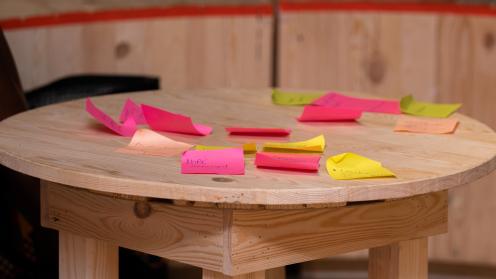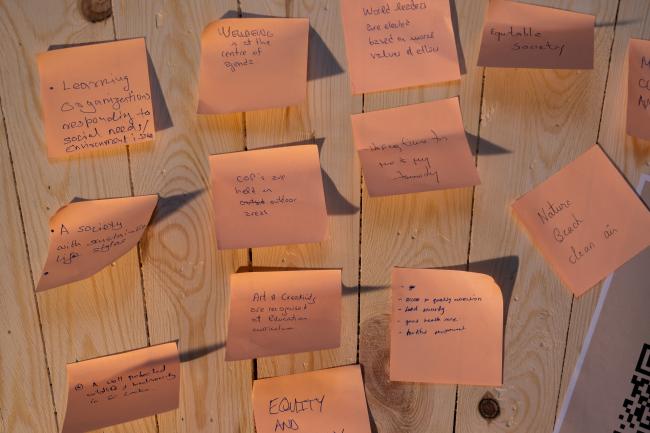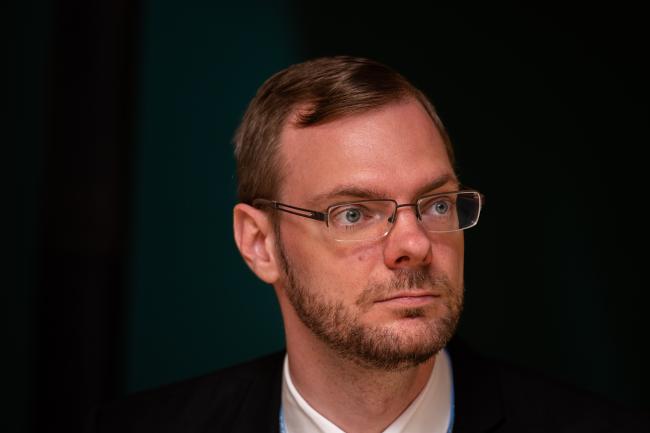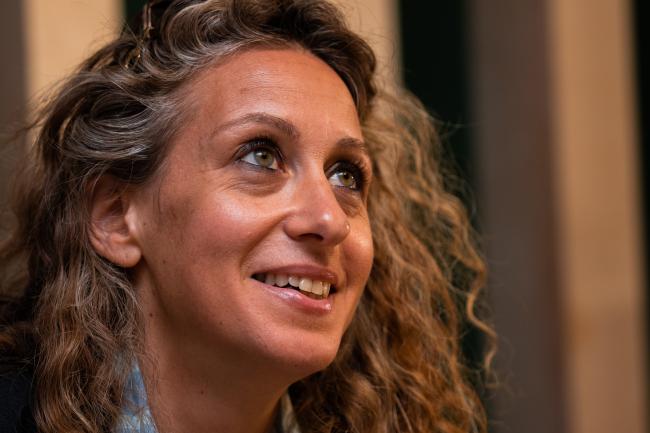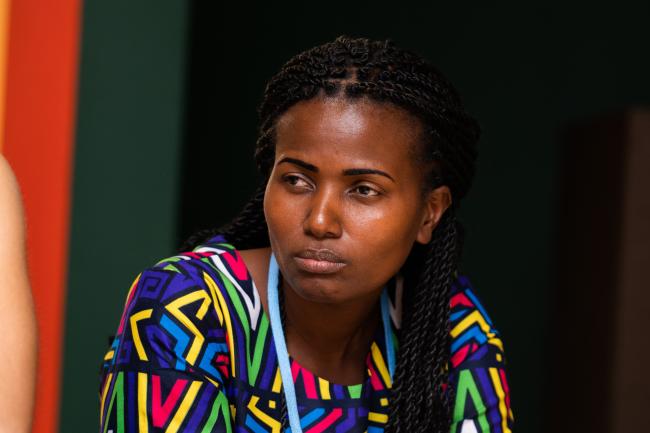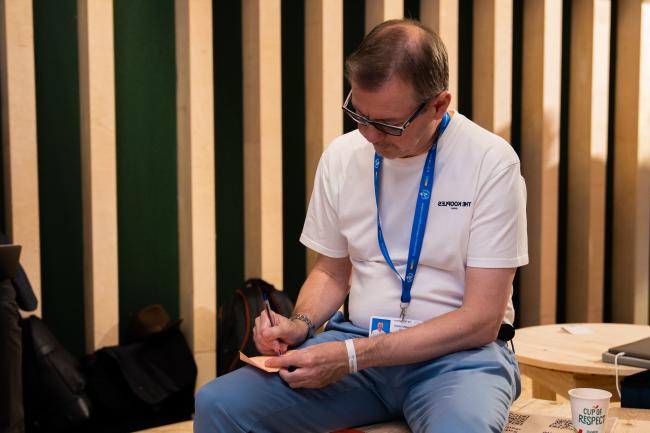Resilience Frontiers Cross-cutting Day
Cutting across conversations held to date and planned for future sessions at the Resilience Frontiers Pavilion, participants engaged in an interactive exercise to focus on youth, and collectively elaborating visions for a desirable future for all.
Dennis Mombauer and Vositha Wijenayake, Slycan Trust, guided participants through an exercise aimed at drawing out connections between visions of brighter futures and connections between these visions and the eight pathways that have thematically and substantively driven dialogues at the Resilience Frontiers Pavilions.
Mombauer opened the session with three questions – with the scope of questions moving from the individual, to the collective, to the planetary – and he prompted participants to write and share their responses on adhesive notes:
- What are the essentials for you to be happy in 2030 and beyond?
- As a collective/community, what would be key elements in place for a holistic life?
- With the Resilience Frontiers pathways in mind, what are some keywords that are important for the planet’s future?
Participants wrote their responses and affixed their adhesive notes to Pavilion benches in three clusters, one for each question. Mombauer and Wijenayake then invited participants to visit each cluster of notes and find commonalities across their responses.
Reflecting on the clusters, participants noted that broad categories of “experts” and “learners” seemed to apply, with some answers reflecting an area of decision making and others reflecting an area beyond this more selective ring. Wijenayake suggested that this surfaces a larger question of how learners might actually be the true “pioneers of change.”
Learning emerged as a common theme. For example, looking more closely at answers to the question about collective futures, participants noted that it had prompted thinking about systems and environments, communities, well-being and equity, as well as a set of responses focusing on aspects such as literacy and knowledge that are vital to achieving these futures.
Asked to think more broadly across all three clusters, participant Nela Cadiñanos Gonzalez highlighted dominant themes, including, inter alia: equality; “adopting a beginner’s mindset”; the “power of collaboration”; “no idea of limitation”; “thinking about economies beyond money”; and “elevating unconsciousness and making humans more aware of themselves.”
Others saw similar commonalities, additionally highlighting: harmony; well-being; inclusivity; access to and awareness of nature; climate education; knowledge and capacity building; and providing finance to protect biodiversity.
Marcela Main Sancha, Resilience Frontiers, also noted that the group’s responses could be clustered into: “different values; an aspiration for well-being and community; a concern to be closer to nature; and a concern for socioeconomic systems.”
Michal Nachmany, Climate Policy Radar, then underscored how participants drew out “macro-micro connections, organism, and ecosystem, and finding our place between individual and unit.”
Closing the session, Mombauer revisited each of the eight pathways and prompted participants to connect their responses to these Resilience Frontiers themes. Elaborations on these connections included, inter alia:
Pathway 1: Transforming humanity’s relationship with nature: Connections include “realizing humanity and nature are not separate” and forms of spirituality that emphasize we are “one collective unit.”
Pathway 3: Ensuring universal, equitable coverage of, and open access to, (big) data and information: Calling this her “pet pathway,” Nachmany underscored that data and access to it are vital to lifelong learning and intergenerational connections. She urged thinking about data beyond “kids staring at screens” when thinking about how data facilitates interconnectivity.
Pathway 4: Managing water and other natural resources equitably and inclusively: Connections include equitable management and more holistic perspectives capable of seeing how everyday commodities are linked to concerns for agriculture, water, forests, and others as limited resources.
Participants also noted that each pathway has positive and negative elements, and that additional consideration is required for putting young people at the forefront of our thinking. Nicera Wanjiru Kimani, Habitat for Humanity International, emphasized “rethinking the way of doing things, to make sure that when we walk, we walk the talk,” and this requires funding. Another participant added “mentorship” to ensure that financial resources are wisely put to use.
Reflecting on the session, Nachmany underscored that the interactive exercise and dialogue aligned with the ethos of Resilience Frontiers, which is “not a thing; it is something that flows through the system.” She added, “All of the things here are about a change in the heart. It’s not ‘instead of’ anything else, but with it anything else can’t work. It’s a bit of glue.”
Main Sancha closed the event by mentioning that Resilience Frontiers is striving to become increasingly relevant at the regional level and to develop more concrete areas of work. “We’re not here to lecture to each other but to integrate the conversation and to listen to each other,” she concluded.
In the afternoon, Resilience Frontiers Pavilion guests took a Virtual Reality tour of a coal town undergoing a transition to a cleaner future. Along the way they encountered diverse stakeholders and learned about the complexity of sustainable transformations. This was followed by an interactive Future Café.
Organizers: Resilience Frontiers, UNFCCC
Contact: Susan Robertson I srobertson@unfccc.int
For more information: https://resiliencefrontiers.org
To receive free coverage of global environmental events delivered to your inbox, subscribe to the ENB Update newsletter.
